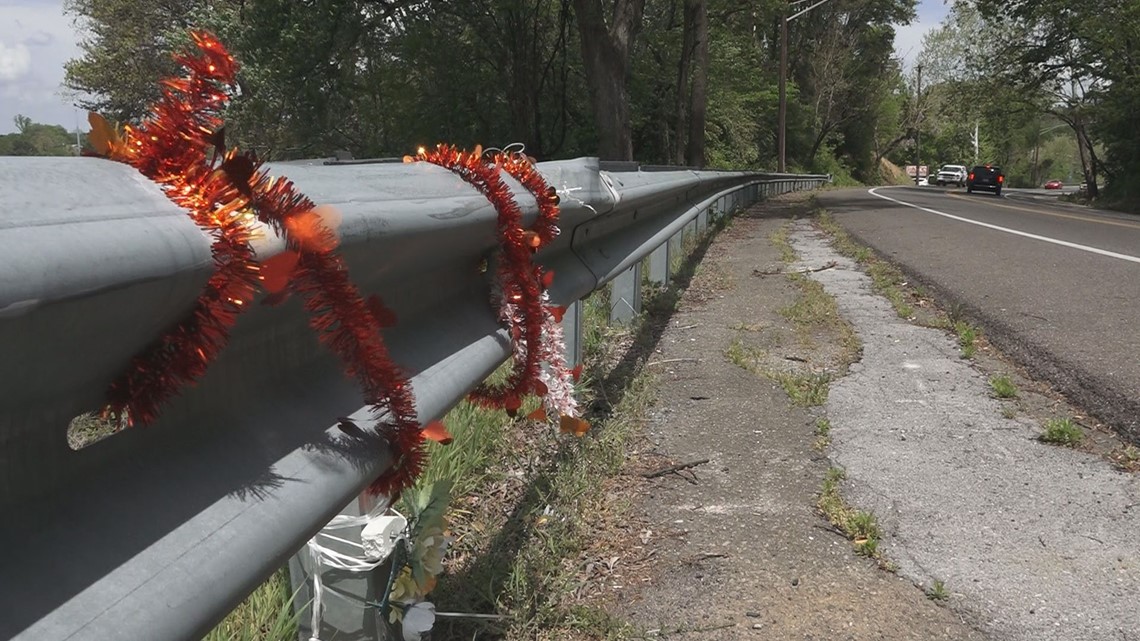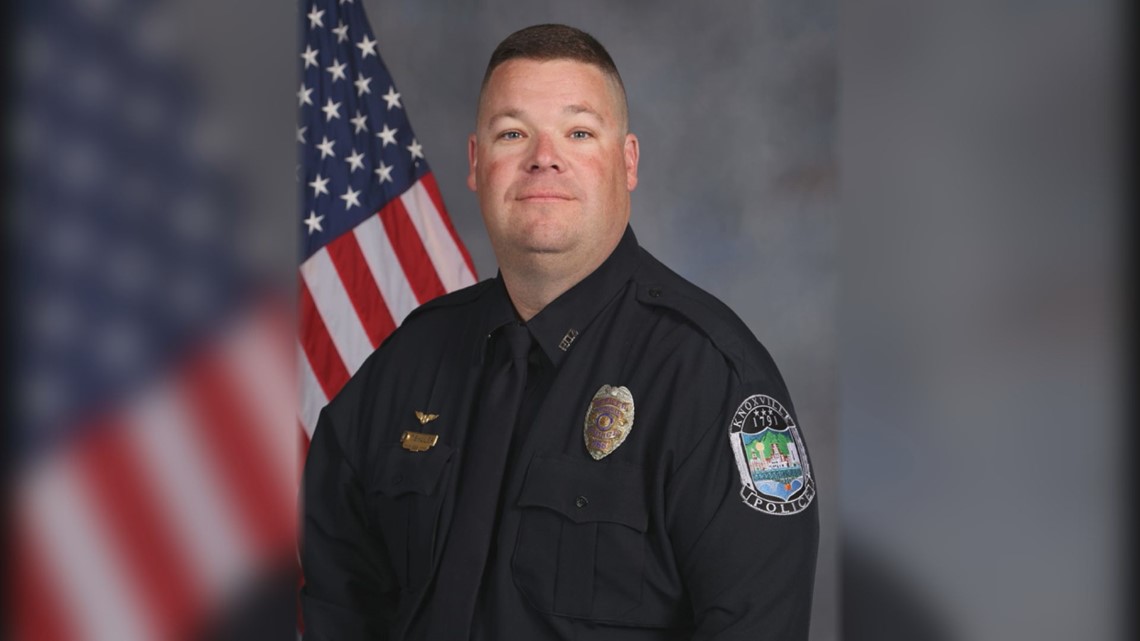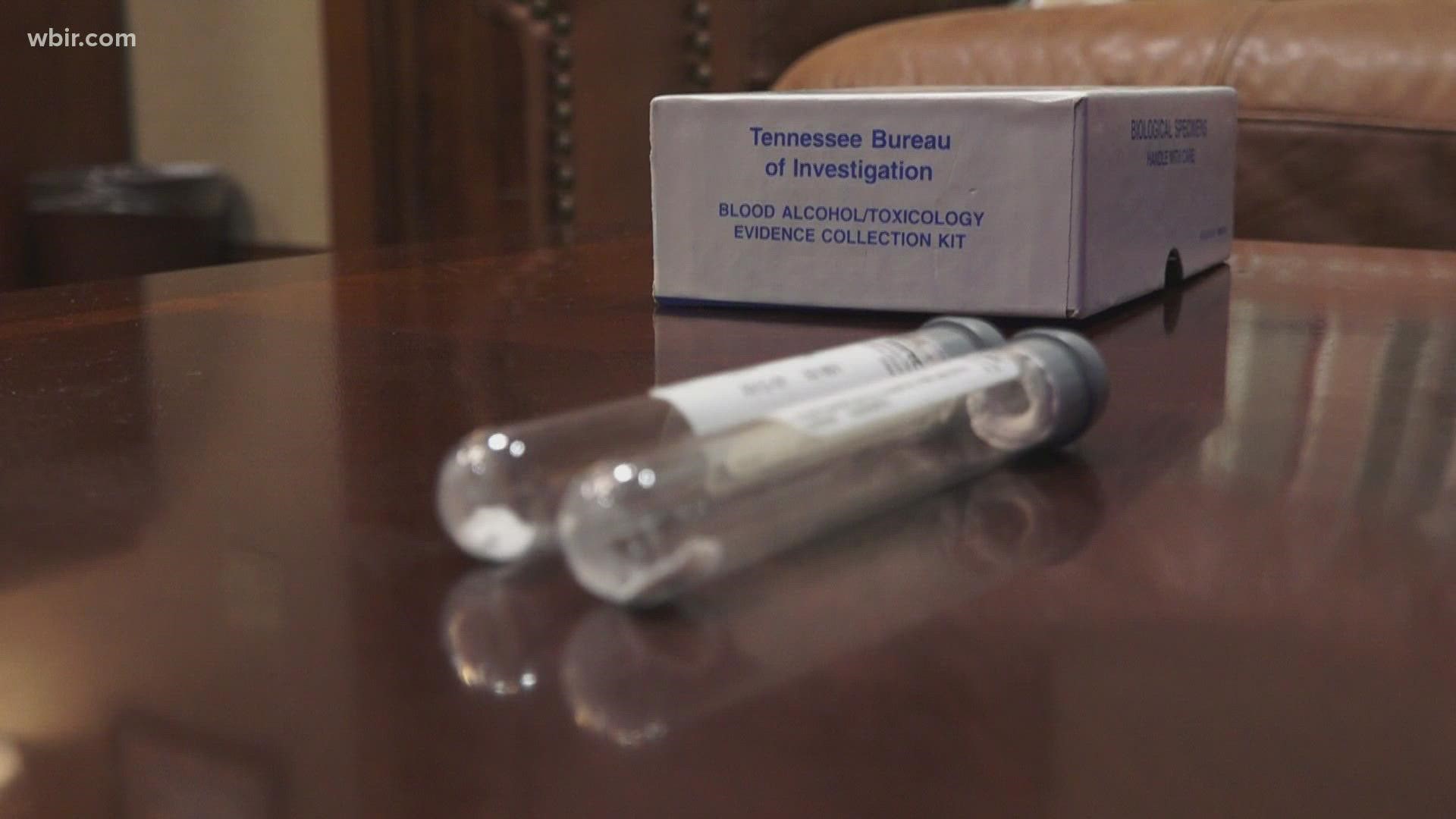KNOXVILLE, Tenn. — The Knoxville Police Department suspended a 20-year veteran officer for two days without pay earlier this year after an internal investigation found he put vials of blood collected as evidence in a deadly wreck into his home fridge instead of bringing them immediately to KPD's evidence room, documents reveal.
Travis "Biscuit" Shuler collected the blood from the University of Tennessee Medical Center's lab on Friday, May 28, 2021, but did not submit it into evidence to be tested until four days later, the documents show.
He told investigators because of "traffic concerns on a Friday," he brought the vials of blood home with him and put the TBI evidence box containing them into his refrigerator, according to the internal affairs file obtained by 10News through a public records request.
Days later, his wife found the evidence and tried to turn it in at police headquarters downtown before handing it over to Shuler at a gym parking lot in Farragut, she told investigators.
"Officer Shuler regrets his error in judgment and has most certainly learned from the incident," said his attorney, Don Bosch.
Knoxville Police said internal affairs investigators found the Shuler's evidence mishandling "appears to be a one-off with no similar previous issues."


Prosecutors charged Paige Phillips, 30, with vehicular homicide for a May 27 crash on Bruhin Rd. in North Knoxville.
Shuler was called to respond to the scene around 5:30 p.m., the documents show. In the crash report, he wrote that Phillips' white Chevrolet Malibu drifted left of the centerline while rounding a curve and crashed with a silver Dodge Challenger. The head-on crash killed the driver of the Challenger, 26-year-old Ezekiel Reeves, the report said.
Prosecutors suspected Phillips had been "drinking alcohol and doing Xanax" prior to the crash, the DA's office wrote in a letter contained within the internal affairs file. Shuler obtained a subpoena for a test of her blood and went to the University of Tennessee Medical Center's blood lab to pick up the vials on Friday afternoon, he told investigators.
While the district attorney's office said tests from the Tennessee Bureau of Investigation eventually showed no alcohol and trace amounts of drugs in the blood, the sample remained in Shuler's fridge over the Memorial Day weekend.
"With the traffic concerns on, on a Friday uh, [sic] I made the decision to take the blood to my house since I was the only one at home," Shuler told internal affairs investigators. "I made the decision to take it home and uh ... was actually working a 5k the following morning. I thought I would bring it back then but I forgot to."
After the 5k road race, Shuler wasn't due back at work until the Tuesday following the Memorial Day holiday, he said. When he prepared to leave for work that morning, he told investigators he couldn't find the vials of blood.
"He leaves, calls me and tells me, 'Put the trashcan back up, don't let them take that off. Go through my truck, go through the refrigerator. Call me if you find it,'" his wife told Internal Affairs.
She said she tried to call him when she found the vials, but he didn't answer. Instead, she looked up the address to KPD headquarters near downtown, drove there and told the officer at the information desk she "found it underneath one of the dishes," the documents said.


She left KPD headquarters without turning over the blood and brought it to the parking lot of Planet Fitness near Campbell Station Road, Shuler testified. He took custody of the evidence there and then met with the victim Reeves' family, before sealing the box in the KPD evidence lab four days after collecting it from the hospital, the internal affairs investigation found.
"It creates a chain of custody issue simply because once that blood is extracted from that individual than it is expected to be transported to the TBI research facility in a timely manner," said defense attorney T. Scott Jones, who is not connected to the case. "The argument is always going to be made that the evidence could’ve been contaminated."
RELATED: State says Union Co. Sheriff broke terms of deal struck after cheating scandal, could lose badge
Assistant District Attorney Gregory Eshbaugh wrote the TBI found no alcohol in Phillips' blood sample once it was delivered to the lab, but did find "indications of the possible presence of Clonazolam," a drug similar to, but perhaps stronger than Xanax.
Eshbaugh asked the TBI to send the blood sample to an independent lab, which also could not conclusively determine that Clonazolam was present in the sample, the letter said.
"It is unclear at this time whether Officer Shuler's delay in placing the blood samples in evidence allowed the suspected Clonazolam to break down in the vacutainers to levels below detection limits," Eshbaugh wrote.
Had the tests shown intoxicants in the blood, Shuler's "mishandling" of the evidence could've prevented prosecutors from using it in the case, Eshbaugh wrote.
"While I am truly hopeful that this was an isolated incident, Officer Shuler's actions, in this case, will inevitably cast a shadow on other cases involving him," he said.


KPD spokesperson Scott Erland said investigators initially held concerns about chain of custody in other cases Shuler worked and examined his blood evidence submissions over the past 10 years.
"Those submissions were consistent and there were not any red flags," Erland said in an email. "Chain of custody and evidence handling are laid out in department policy clearly and in detail. Officers are trained on this policy and the expectation is that they know and follow that policy in all situations."
"The purpose of the Internal Affairs Unit is not only to hold officers and employees accountable but also to identify the deficiencies and shortcomings of the department through its investigations. In this case, that happened," he said.
Shuler began working for the department in December 1998, Erland said. Since the incident, the department removed him from the motors unit and crash reconstruction detail. He is currently assigned to the patrol division, Erland said.
In August 2020, the department posted a thank-you letter from a driver about Shuler's assistance following a hit and run crash.
"He was courteous, kind, respectful, sympathetic, and very helpful and filing our report," wrote the crash victim, identified only as Barb H. "It was very hot that afternoon and it didn't matter to [Shuler]. He took his time to make sure our information was filed correctly and that we were okay."
"Officer Shuler recognizes he erred in the manner he attempted to preserve this blood sample," said his attorney. "Fortunately for the state of Tennessee's case and for the family of the victim, the blood had no evidentiary value in the state's prosecution and was negative for any intoxicating substances."
Phillips is charged with vehicular homicide in the crash and is due in Knox Co. Court for a status hearing on Friday.

